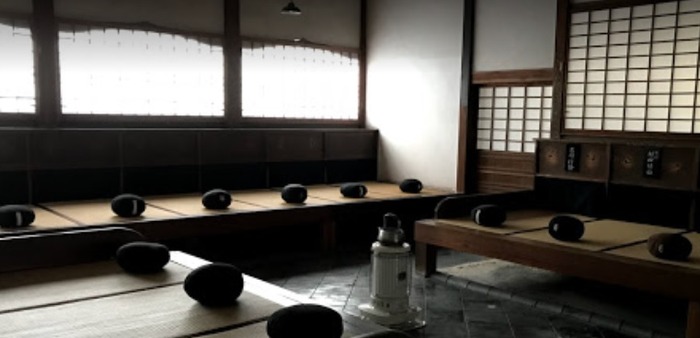I kinda think that if zen had a greater hold in Australia it would be dressed in rural workwear or singlets, boardshorts and thongs (flip flops you perves lol). In the US, zen seems more conservative/orthodox which is another reason i love Treeleaf because we are the misfits and rebels of the zen world even though we are all different.
Jundo often does summer sittings in board shorts and you might well have heard about the time he got invited to a naked Zen sit! (fortunately we stop at the shorts and t-shirts!).
Some of American Zen does seem conservative but I get the feeling that a lot of it also is not. A number of the Beat writers loved Zen (Kerouac wrote Dharma Bums, Gary Snyder ended up in a Rinzai monastery in Japan) and it appealed to a lot of the hippy generation then all kinds of people seeking alternative ways of living outside of the norm. Why even bother seeking out a foreign religion that has you sitting on your butt for hours and chanting odd things unless you think that the mainstream way of living is not for you, and maybe even totally out of kilter with what may be best for humans in general?
Bernie Glassman was unconventional. John Daido Loori sat smoking cigars during dokusan. Roshi Joan Halifax came from a background of medical anthropology and the study of shamanism. She was also married to Stanislav Grof who wrote the influential book Holotropic Mind. Brad Warner is a punk rock bassist with a love of comic books and monster movies. Darlene Cohen had to hobble to her nearest Zen center because of severe rheumatoid arthritis that she had for her whole adult life. US Zen folk I have had contact with seem no different from those of us at Treeleaf, all with their various stories of being a misfit and hearing a small voice that grows louder telling us that another way is possible.
I would really recommend reading about some of the western Zen teachers and their stories and teachings before casting a judgement upon them. From the outside, Treeleaf might look like a bunch of geeks trying to imitate Japanese life and many have judged us before getting to know how things work here. The teachers who have visited have largely felt it just like a bricks and mortar Zendo.
Whether US Zen represents western Zen and whether we like it or not is not particularly relevant anyway, imho. The important thing is to find a teacher and sangha you can work with and let go of all the other stuff. None of us here is anything special (well, aside from Risho
 ) and while it is important to find a place that feels more or less like home, even the best sangha will end up having frustrating elements. And that is just as well as it is part of practice.
) and while it is important to find a place that feels more or less like home, even the best sangha will end up having frustrating elements. And that is just as well as it is part of practice. Gassho
Kokuu
-sattoday-




 . This is something I initially struggled with here at Treeleaf because, as opposed to other online places where people meet, there is what I'd label Buddhist communication. In general people post with a sense of "does my reply contribute or does a simple gassho suffice." "Is what I add to a thread helpful or superfluous? I really had to get used to that because at regular forums I get so many replies when I post something I don't even know who to reply to first. Over here I really had to get used to receiving not a single reply at times...and sometimes it made me wonder if I said something inappropriate or unusual. Now I'm fine with it. Like Jakuden said, it can be useful practice in the sense of reflecting on how we deal with our expectations.
. This is something I initially struggled with here at Treeleaf because, as opposed to other online places where people meet, there is what I'd label Buddhist communication. In general people post with a sense of "does my reply contribute or does a simple gassho suffice." "Is what I add to a thread helpful or superfluous? I really had to get used to that because at regular forums I get so many replies when I post something I don't even know who to reply to first. Over here I really had to get used to receiving not a single reply at times...and sometimes it made me wonder if I said something inappropriate or unusual. Now I'm fine with it. Like Jakuden said, it can be useful practice in the sense of reflecting on how we deal with our expectations.
Comment